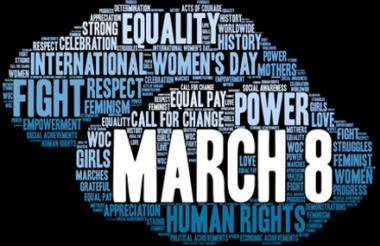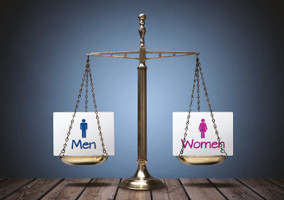This International Women's Day Lizzi Hollis-Butcher, founder of Charity Women and corporate partnerships manager at St Mungo's, looks at where the sector is in terms of women's representation, and calls on the sector to ask itself how it can be part of the solution.
Since 2016, when Charity Women began, I have noticed a swell in conversation on the topic of women and progression. For the first time at last year’s Institute of Fundraising Convention there were whole sessions and panels dedicated to diversity and representation.
It is common knowledge that our sector lacks female leadership; 65 per cent of the charity work force is comprised of women yet in the top 100 charities 70 per cent of the chief executives are male and only 17 per cent of these charities have a female chair of trustees; 4 per cent have no women on their boards at all. The raw deal often faced by women looking for progression in the charity sector has leeched into our psyches, if not quite our workplaces yet.
Charity Women was set up long before #MeToo became a global movement and turned into #TimesUp; before the behaviour of high ranking men at The Presidents Club was known; and before the abuses of Oxfam aid workers were fully understood, but stories like these have just strengthened our desire to create safe places to support and elevate women in the workplace.
Despite the fact that #MeToo came out of a high-profile Hollywood scandal it provided a prime opportunity for us to look inward and put some focus on the charity sector.
We asked the women in our network to share their #MeToo stories from within the sector and were sadly unsurprised by the volume of responses we received. One tweet said “I was told by a donor that he would only continue his support for the charity if he could spend time alone with me” another wrote “I had lewd comments at a golf tournament and was winked at, fondled and called honey repeatedly at an event.”
'Make the charity sector more accesible for women'
We like to make the most of stories and events within the wider world to pull focus on what is happening in our own sector. For the 100th anniversary of some women in the UK gaining the right to vote we asked our followers to embody the spirit of ‘Deeds Not Words’ and tell us what actions they want to take, and to be taken, to make the charity sector for accessible for women. Overwhelmingly, better flexible working conditions was the number one way our followers thought we could achieve gender parity in the sector, followed by more women on boards.
For International Women’s Day we will ask our followers to nominate women in the sector who inspire them and tell us why – recognition is so important for women’s confidence and to show that celebrating female achievements is normal behaviour.
Across all industries the reaction to women’s successes is always received negatively compared to men’s, and this is no different in our sector. Back in my officer days I was selected to participate in a prestigious innovation programme my organisation was launching, when I reflected on how pleased I was to have been chosen my manager told me to “get back in my box”. These sort of comments can invalidate achievements and ensure women do not seek further opportunities for development and progression.
Charity Women will conduct research that gives 'meaningful direction'
Charity Women is still a small collective and we have the same challenges around focus, aims and objectives as any new initiative and trying to unravel a societal issue and place it in the context of one sector is equally rewarding and demanding. We are keen to spend 2018 focusing on leadership and progression for women and the reasons these can be stunted. We will be conducting research that gives us meaningful direction.
International Women’s Day is a brilliant opportunity for us to shine a light on our sector and to ask questions of ourselves that might seem uncomfortable but that ultimately benefit the success of us all. Look around your organisation and see how many women are in senior positions or sit on your board of trustees. When you go into a meeting take notice as to whether the women are speaking up and if they are, are they being listened to and recognised for their contribution? Ask yourself ‘who is missing and why?’
Most importantly, ask yourself how you can be part of the solution – whether you’re a women pushing outside your comfort zone; or as a man advocating for the women you work with every day.
Lizzi Hollis-Butcher is corporate partnerships manager at St Mungo's and founder of Charity Women, an action group fighting for gender equality in the charity sector.











